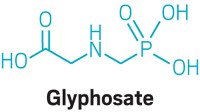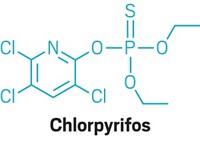Advertisement
Grab your lab coat. Let's get started
Welcome!
Welcome!
Create an account below to get 6 C&EN articles per month, receive newsletters and more - all free.
It seems this is your first time logging in online. Please enter the following information to continue.
As an ACS member you automatically get access to this site. All we need is few more details to create your reading experience.
Not you? Sign in with a different account.
Not you? Sign in with a different account.
ERROR 1
ERROR 1
ERROR 2
ERROR 2
ERROR 2
ERROR 2
ERROR 2
Password and Confirm password must match.
If you have an ACS member number, please enter it here so we can link this account to your membership. (optional)
ERROR 2
ACS values your privacy. By submitting your information, you are gaining access to C&EN and subscribing to our weekly newsletter. We use the information you provide to make your reading experience better, and we will never sell your data to third party members.
Business
European Union Seeks Tighter Pesticide Controls
Crop Protection: Regulators seek to restrict 20% of substances
by Alex Scott
February 9, 2015
| A version of this story appeared in
Volume 93, Issue 6
Agricultural chemical companies in Europe are being buffeted by a series of initiatives to substitute—or reduce the use of—many pesticides applied in the region.

Experts representing the European Union’s member states want to investigate restricting the use of 77 pesticide active ingredients that are potentially harmful to human health and the environment. The move could affect about 20% of all pesticides licensed in Europe.
Matthew Phillips, cofounder of U.K. pesticide and biotechnology consultancy Phillips McDougall, cautions that ingredient replacement would take place only if safer alternatives exist. “Identifying safer alternatives is complex,” he says. “The likelihood is that there may be restrictions for certain applications of a product rather than outright bans.”
In a separate move, France’s agriculture minister, Stéphane Le Foll, has introduced a policy to cut pesticide use in France by 25% by 2020 and 50% by 2025. The policy, which aims to replace pesticides with agricultural methods that don’t involve use of chemicals, is being slammed by the European Crop Protection Association, an industry group. “It will be difficult to meet these targets, which are politically driven,” says Euros Jones, ECPA’s director of regulatory affairs.
Potentially the largest threat to Europe’s pesticide makers is a planned policy to control human exposure to endocrine-disrupting chemicals, or EDCs. The European Commission is currently evaluating what constitutes an EDC. Bayer, a major European agchem supplier, rejects an accusation made in the Guardian, a U.K. newspaper, that the company pressured European officials into suppressing a draft EDC system.
EU draft legislation on EDCs is not expected until 2016. “It is too early to say where we will end up with the final criteria, but this will potentially have a major impact on the market,” Jones says.
The confluence of regulations to control pesticides in Europe is a “worrying trend,” according to Bayer. “In an unpredictable regulatory climate, research-intensive companies will find it harder and harder to invest the resources necessary to develop new products,” the firm tells C&EN.





Join the conversation
Contact the reporter
Submit a Letter to the Editor for publication
Engage with us on Twitter